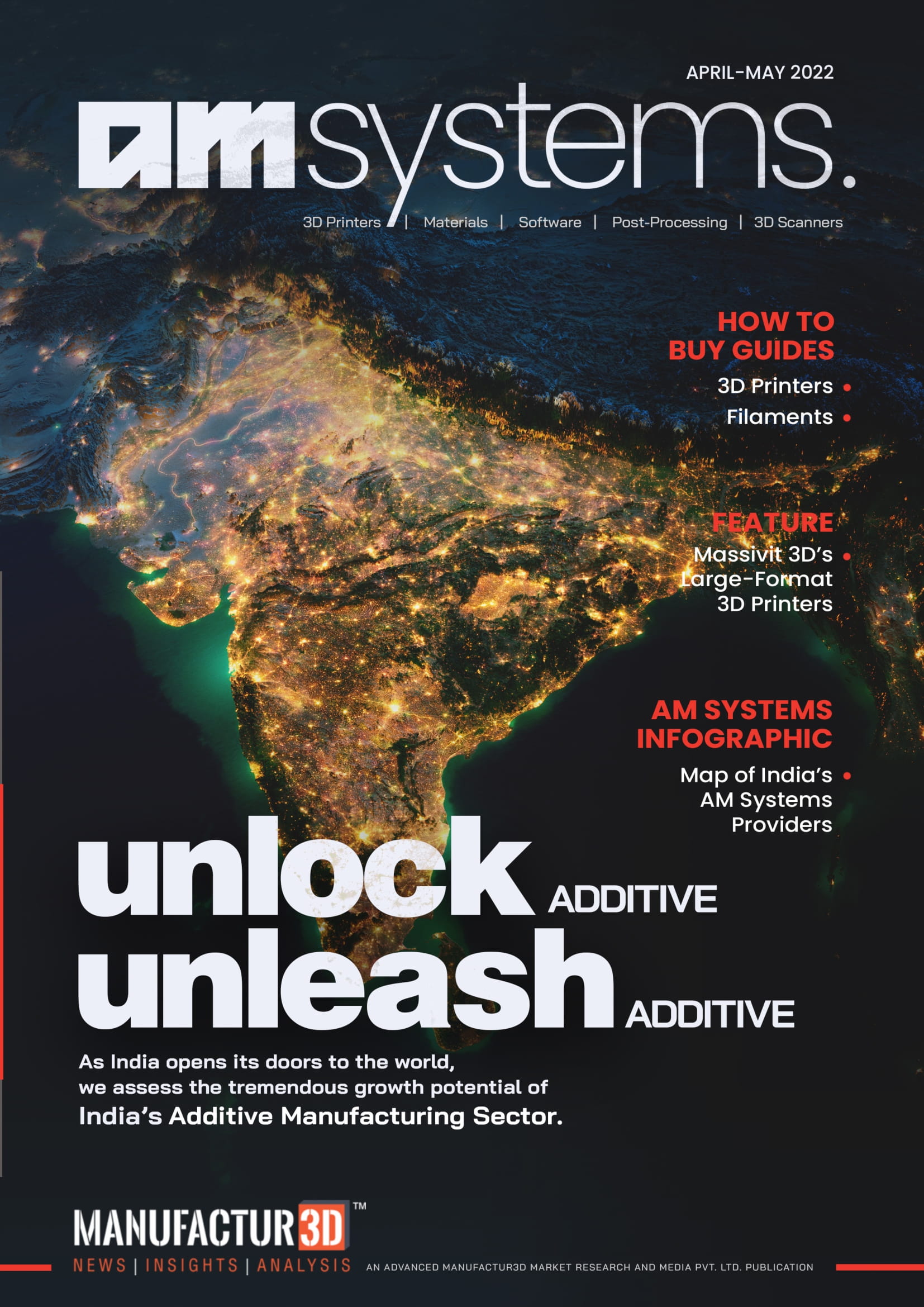
Fortify, the Boston-based additive manufacturing startup, entered into a partnership with Rogers Corporation, the global leader in engineered materials for advanced connectivity and power electronics, to enable additive manufacturing of low-loss dielectric materials for radio frequency (RF) devices and electronics. Both the companies are aiming to develop 3D printed dielectric material systems for radio frequency devices. The Continuous Kinetic Mixing will form the base technology to develop the same.
The partnership allows both companies to leverage their areas of expertise to unlock scalable manufacturing of high-value RF components. Rogers Corporation’s market dominance in low-loss, high frequency materials combined with Fortify’s advanced composite processing capabilities enables customers to efficiently design and print precision substrates, Luneberg-like Gradient Refractive Index lenses, and end-use components.
3D Printed Dielectric Material Systems

Fortify’s Continuous Kinetic Mixing (CKMTM) powered DLP platform enables high-throughput production of fine-featured parts out of heavily loaded materials that are otherwise difficult to process.
Continuous Kinetic Mixing (CKM™) addresses this issue by blending resin and additives. Material is recirculated (and heated as required) throughout the printing process. It enables printing of photopolymer resins with uniformly distributed functional additives. The system ensures that particles stay in suspension instead of agglomerating or settling to the bottom of the vat.
“As our world becomes increasingly connected, so does the need for faster and higher capacity wireless connections. Partnering with Fortify will allow Rogers to deliver a complete solution for the manufacturing of 3D printed dielectric components, enabling our customers to create the next generation of wireless systems.”
– Trevor Polidore, New Product Development Group Leader at Rogers Corporation
Wireless communications and SATCOM systems have led the expansion of active antenna systems (AAS) use into mainstream consumer applications. By taking advantage of AAS’s ability to generate highly directive signals that can be electronically steered and form various beam patterns, the latest applications such as 5G and high-throughput satellites (HTS) can deliver services previously inaccessible with conventional antennas.
However, many AAS technologies are expensive and complex to manufacture with multitudes of performance tradeoffs that often require new technologies and high cost devices to yield competitive solutions. It is possible to address some of these challenges with intricate 3D printed dielectric materials, but complex 3D dielectrics have historically been difficult or impossible to manufacture with the necessary cost, quality, and repeatability to meet practical manufacturing requirements.
“The photopolymers available today are an order of magnitude more lossy than thermoplastics, yet 3D printing complex parts at scale out of thermoplastics is time consuming. With the right low-loss material systems from Rogers combined with Fortify’s printers, we can offer a solution that provides excellent feature resolution, great RF properties, and high throughput capabilities for end-use parts.
– Phil Lambert, Sr. Applications Engineer at Fortify
While traditional DLP platforms struggle to print highly viscous materials, CKM technology employed on all Fortify Flux Series printers allow for the processing of advanced materials, such as Rogers’ low loss materials, while maintaining material quality and consistency throughout the manufacturing process.
According to Josh Martin, CEO and Cofounder of Fortify, “With Rogers, we are positioned to commercialize the first scalable, low-loss 3D printed dielectric materials for RF devices. This partnership is a great example of how innovative materials and technology companies can come together and provide a differentiated value proposition to a rapidly growing market. Fortify has a scalable way of manufacturing continuously varying dielectric material, which is a game changer for the scanning beam antenna market (5G, surveillance, remote sensing, and security).”
Applications of this new technology include passive lens devices that augment gain and directivity for single or multi feed systems found in RF sensing and SATCOM On-The-Move commlinks, and 5G AAS systems to widen field of view and reduce sidelobe levels.
The advantages of Fortify’s 3D printed dielectric material systems for radio frequency devices include: lower weight, wide bandwidth, scalable manufacturing, structure design freedom, quick turnaround parts, and more. The two companies continue to collaborate to optimize printing processing parameters to realize all these benefits and more.
About Manufactur3D Magazine: Manufactur3D is an online magazine on 3D Printing. Visit our Global News page for more updates on Global 3D Printing News. To stay up-to-date about the latest happenings in the 3D printing world, like us on Facebook or follow us on LinkedIn and Twitter.



